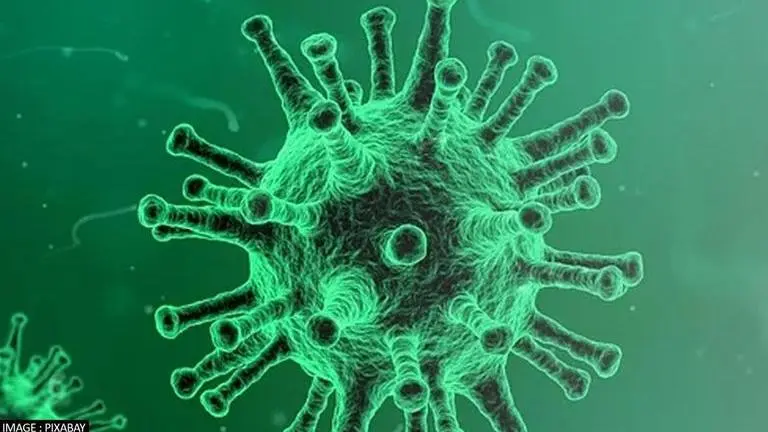Updated 28 November 2021 at 06:30 IST
COVID-19: A look at all coronavirus variants discovered so far and what we know about them
Many COVID-19 variants have emerged over the course of the pandemic. Some have spread over the world, extending the pandemic, while others have faded.
- Lifestyle News
- 5 min read

The World Health Organization (WHO) designated a new SARS-CoV-2 variant, presently circulating in South Africa, as a 'Variant of Concern' on Friday. The new COVID-19 variant has been named Omicron. The mutation was discovered on Monday by the Network for Genomics Surveillance in South Africa (NGS-SA). It had discovered a cluster of SARS-CoV-2 viruses that belonged to the B.1.1.529 lineage. According to preliminary findings, this variant may be even more transmissible than the highly infectious Delta strain, and current vaccinations may be less effective against it.
Nearly 30,000 letters of RNA are found in each coronavirus. The virus uses this genetic material to invade cells and hijack them to create new viruses. When an infected cell creates new coronaviruses, it generates small copying errors known as mutations. Mutations can be tracked as they move down through a lineage, or branch of the viral family tree, by scientists. A variant is a collection of coronaviruses that have the same inherited set of unique mutations.
How many COVID Variants have been discovered thus far
Many SARS-CoV-2 virus variants have emerged over the course of the pandemic. Some variants have spread over the world, extending the pandemic, while others have faded or been supplanted by other variants. The most harmful ones are known as 'Variants of Concern', and they include:
- Delta (B.1.617.2)- It is the most widespread variant in the UK. This variant is a sublineage of B.1.617 that was discovered in India. Delta is more easily transmitted and can result in more severe sickness, especially among the unvaccinated. Delta includes multiple AY.* sublineages as well as B.1.617.2.
- Alpha (B.1.1.7) - This variant was discovered in the United Kingdom and has since spread to over 50 nations. The variant is more easily transmitted and can result in more severe sickness than prior versions. The Q.* sublineages are likewise included in Alpha.
- Beta (B.1.351) - The variant was discovered in South Africa but has now been reported in at least 20 other nations, including the United Kingdom. When compared to the "wild type" or "ancestral" SARS-CoV-2, the beta variation propagated far more quickly among people, resulting in South Africa's second pandemic wave. As a result, it was classified as 'variant of concern'.
- Gamma (P.1) - It was discovered in Brazil but has since spread to more than ten additional nations, including the United Kingdom. The variant first reported in Japan but later identified as originating in Brazil. It has the potential to re-infect patients who had already been infected with COVID-19. P.1.1 and P.1.2 are sublineages of Gamma. Some current treatments may be ineffective in cases of this variant.
- Omicron (B.1.1.529) - The World Health Organization has classified Omicron as a VOC. In Canada, its variant nomenclature is being studied. The variant contains a large number of mutations in the virus's spike region, which may impact how it spreads and how it responds to current treatments and immunisations. The complete spike protein, which is the component of the virus that infects cells, is produced using mRNA vaccines. The variant is unlikely to impair the vaccine's capacity to protect against serious cases. Researchers from all over the world are actively studying and monitoring this variant.
Experts keeping an eye on 'Delta Plus'
Officials in the United Kingdom are also keeping an eye on AY.4.2, also known as "Delta plus," a recent descendant of the Delta type. The Delta variant is currently widespread around the world, but experts are keeping an eye on other types of concern, including the recently announced Omicron variant. The other type of mutation is known as Variants of Interest (VOI). Some VOIs have been assigned a WHO name, while others remain unnamed. In certain circumstances, VOI are downgraded when the scientific community no longer deems them to be a problem, despite the fact that agencies continue to monitor them. The following VOIs and variations are currently being monitored:
Advertisement
- Eta (B.1.525) was discovered in Nigeria in late 2020.
- Iota (B.1.526 and B.1.526.1) variants were discovered in late 2020 in New York.
- Kappa (B.1.617.1), a sublineage of B.1.617, the variant got discovered in India.
- Lambda (C.37) was discovered in Peru for the first time.
- Mu (B.1.621 and B.1.621.1) is a recent variant that is being attentively examined.
- C.1.2, was discovered in South Africa for the first time.
- AZ.5, has been found in number of countries.
- B.1.630 was discovered in the Dominican Republic for the first time.
Vaccines against COVID variants are already being designed and tested, across the world, in case they are required in the future. If that time comes, a new vaccine might be ready in a matter of weeks for testing. Manufacturers may also quickly ramp up production, and regulators have already considered how to expedite the approval process, the BBC reported. Despite the fact that COVID infections have been on the rise again in the UK, the number of hospitalisations and deaths has remained significantly lower than in previous rounds, reportedly. According to experts, this is due to the efficacy of the immunisation programme.
Scientists will conduct numerous studies to see whether the vaccines will be effective against this latest version. It's too soon, but experts will look into possibly significant mutations that could make it more contagious and able to evade some of the protection provided by vaccines, according to medical experts. They will also determine whether it causes more severe disease than other coronavirus strains.
Advertisement
(With inputs from agencies, Image: Pixabay)
Published By : Aparna Shandilya
Published On: 28 November 2021 at 06:29 IST
